
What would it feel like for you to do something a little different in your life? Say, register for a 100km race? of course you wouldn’t actually do this; the mere thought of it is simply ridiculous. However, maybe you are a tad curious as to how such a thing could be done. Well, look no further; here is how I managed to get myself out of a rut and into a doozy of a race- and everything I learnt along the way, so you don’t have to.
Well well well, look at you taking time out of your schedule to see what training for a 100km race might look like. Of course, you would never really do something like that, you’re simply satiating your curiosity…for now. First things first- anyone can do it. No seriously. I was born with hip dysplasia and rocked hip braces (yes, the ones like Forrest Gump) during my toddler years. When I didn’t have to wear them, it was usually because I was seated, and masked up to my nebuliser to help me breathe. Asthma and wonky hips have been the story of my life. Still, I ran 100kms and not only that, but even was passed by a man celebrating his 69th Birthday (amongst others). At the finish line, you could find me cheering on people with a vast range of body types. Anyone can do it. It is the mindset the matters.
The ‘ultra’ mindset at it’s core, is the notion that your mind can take your body at least 50% further than you believe you are capable of. This rule requires an understanding that pain is temporary, and nobody is safe from experiencing it. There is no trick to avoiding pain, rather, it’s more about managing your discomfort and knowing your mind can take you further than your feet; likely torn to shreds with blisters and missing several toenails. The ultra-mindset is a beautiful thing, and it will take you places – not just 100kms away, but in your life, on a day to day basis once you acknowledge that you too, can have this mental strength.
But why? Is it really necessary to put yourself through such gruelling ambitions in order to understand that your mind and body are capable of incredible things? No. Of course not. Though, you have to admit…something about baggin that hundy and showing yourself who’s boss is quite alluring.
Running 100kms isn’t just tough and absurd, it’s a total mind bender. It will put you in a completely new pain territory, and the longer you compete, the more bizarre things get, and the deeper you’ll have to dig to keep going. You can be the most physically prepared athlete in the world, but without mental strength, crossing that finish line simply won’t happen. The reason? Mind over matter, every time. After 80kms when your feet are torn, muscles aching and your internal organs feel parched, lets be real, the only thing getting you through that is grit.
In order to get to this place of mental strength, you need to find your ‘why’. Are you running 100kms to impress someone? Because that’s not going to get you to the finish line. Are you doing it because you are sick of living by your own limiting beliefs and need something to help you break through? Perhaps life has been stagnant and you need a huge challenge to help you regain focus of what’s really important to you. Whatever the reason, it needs to be strong enough to hold as your mantra while you’re hanging out in sufferville through the stupid hours of the morning.
Repetition is key: our mind creates neural pathways to handle tasks. The more frequently these pathways fire off, the stronger the connections become, allowing you to access your mental toughness with less resistance each time. It is not enough to be motivated. You need to have drive and persistence.
If you choose to set aside some time, and can find your ‘why’, you can do this.
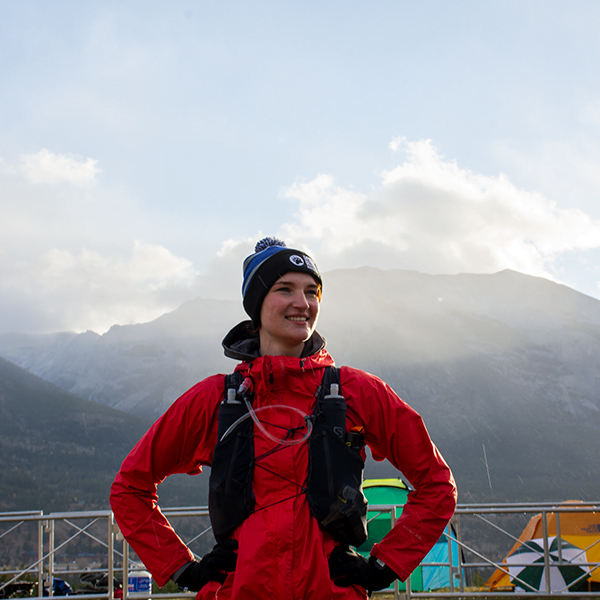
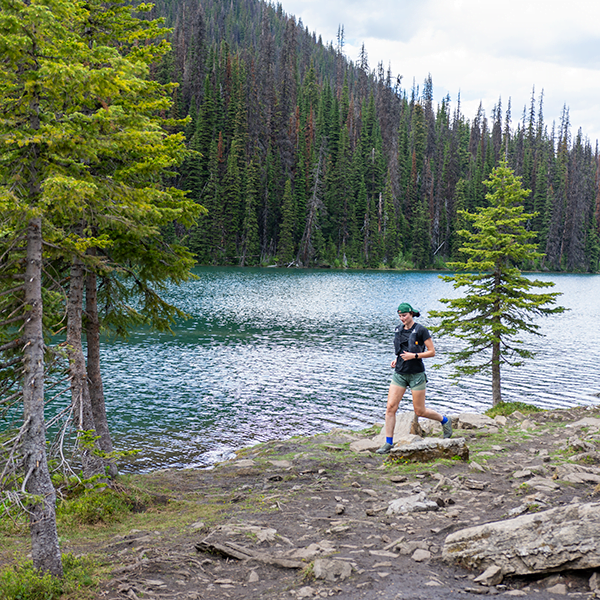
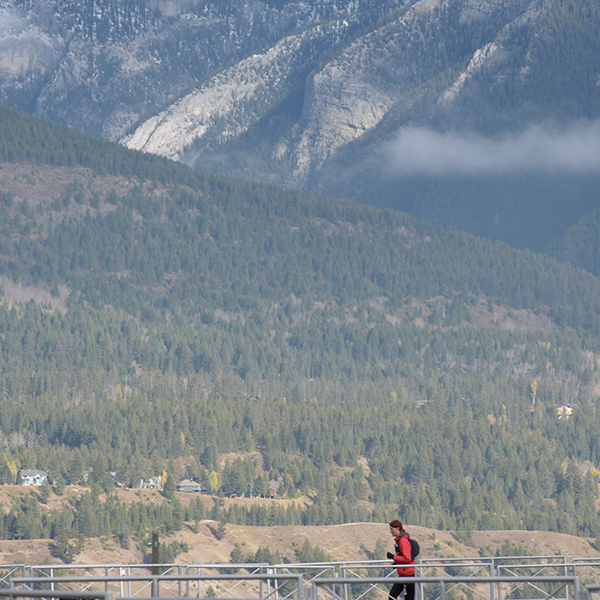
So what does preparing your body for 100kms look like? Well, here’s the good news; remember that thing I mentioned about your body being able to push itself 50% further than you think it’s capable of? Well, the endurance runners rule of thumb is ‘if you can train for half the distance, you can run the full distance’. I kid you not. You will at no point be running 100km during training. If you can train to run for 50-60km, your mind will do the rest on race day. Don’t believe me? Look up any training plan, for any distance, on as many websites as you feel the need to; you rarely train for more than 50% of race distance.
Now, training for 50-60kms is no easy task. This involves learning about multiple types of running and implementing them into your weekly routine. Hills, long runs, and tempo runs will become second nature to you. You will need to befriend a foam roller and the sweet agony it provides for muscle recovery. You’ll stretch when you don’t want to, and even do the odd strength training session (though I foolishly opted to skip this step entirely- not recommended).
In a nutshell, you will be running 3-4 times a week, strength training 2-3 times a week and stretching/foam rolling after each of these sessions. Each week will vary, but try to take a day or two completely off. I recommend doing hill repeats, and tempo runs at least once a week. Hill runs build strength and stamina while tempo runs help with speed and efficiency. The king of any endurance training is the beloved ‘long run’. Now, when I say long run I mean it. Initially, this day will be spent slowly going about your distances on the trails and not enjoying a second of it. Likely, you’ll skip foam rolling and stretching afterwards because you’re ‘too tired’ (been there) and you’ll lay on the couch in a painful stupor not thinking, or saying much for the rest of the evening. I promise there is a shelf life to this effect. As time goes on, the long run will become strangely enjoyable and you will be in fine shape to continue on with your day as usual once you’ve finished it.
It is important to remember the 80/20 rule. 80% of your training should be done at a relatively low-effort. Only 20% of your time should be spent in the higher effort zones to prevent injury. Start slow. If running 1km is pushing your normal threshold, begin there. A good rule of thumb to maintain progress, while avoiding injury is to increase your weekly kms by about 10%. Begin training now. These things take months to train for and pushing your body too quickly will inevitably result in injury. As the saying goes ‘it’s not a sprint, it’s a marathon’. At the end of each week, just know that ultimately mileage matters most. To build this base requires long runs, and eventually back to back, or stacked long runs on tired legs. Go slow, but make sure you do them consistently. These long runs will be what make or break you on race day.
Long runs are not only the key to getting to the finish line, but they’re also the best time to test out fuel and gear. You never want to try anything new on race day. Try to use your long runs to experiment what foods, gels, and electrolytes sit best with you. Try out those new compression socks, water bottles and poles and see how they help, or hurt you over the longer distances. The shoes that feel great for 20km runs might shred your feet to bits after 50kms.
Every once in a while, push yourself a little more to get yourself into that uncomfortable zone where having a positive mental attitude is more challenging. The more you train your mind to persevere past your known limits, the easier it becomes to access that mindset regularly when it really counts. Test out lots of different terrains so you can adapt your body and mind to having the necessary amount of focus required to exert on race day. Your longest run should be at least 4 weeks before the actual race. This will give you plenty of time to taper and have your body well rested, but not deconditioned, for race day. I said it before and I’ll say it again; don’t forget to incorporate your beloved rest days. If you don’t give your body the rest it needs, it will force you to rest in the form of burn out, injury, or sickness.
Listen, I’m not going to beat around the bush here. In Summary, this is what a week in your new life will resemble;
Fear not, although the mornings (or evenings, depending on your schedule) belong to running, and your diet, reading materials, social groups and weekends as well, you can still go away for small trips. The only thing is, now the sights to see on the weekend are based on which trails you haven’t run on, or where a local running group is going. Get used to driving 45 minutes- 1 hour to run on different trails because you’re sick to death of your local haunt.
This will become life as you will know it, almost exclusively, for the next few months. Don’t fear it, embrace it. Enjoy it. Explore it.
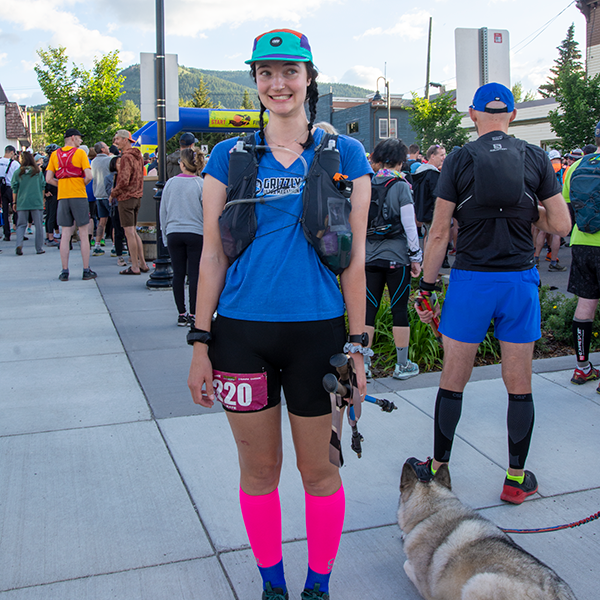
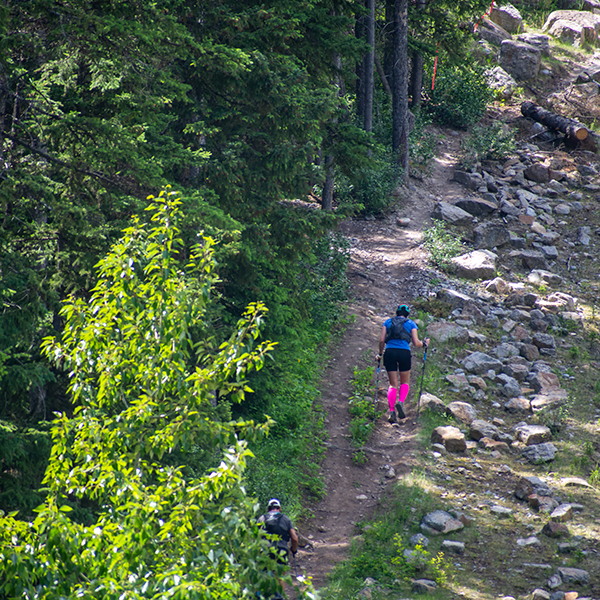
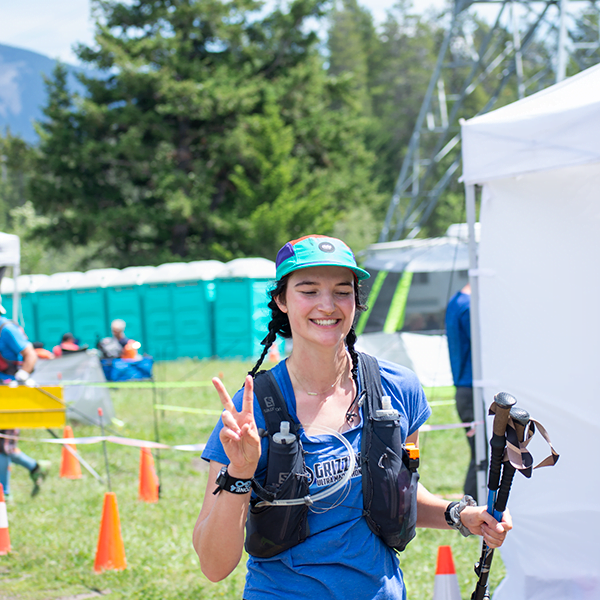
Race day is different for everybody, so I can only give you my personal experience. Essentially, in the span of 4.5 months, I morphed from a lump on the couch to signing up for an ultra marathon. Shortly thereafter I dealt with covid and it’s after effects for far too long. At some point I remembered I had a race to train for, and joined a running group. I made some friends, sweat a lot, swore a lot and went through three inhalers. I spent the rest of the summer doing a few long runs, and some hikes and generally not sticking to a rigid training plan at all.
Before I knew it, I was standing at the start line and the gun went off. I began my ultra with a strained groin I got from tripping earlier that week and nothing but a banana in my belly since I woke up late and didn’t give myself enough time for a proper fuelling sesh. I had no real expectations, just curiosity. The runners took off from the start like a heard of turtles knowing damn well we had the next 21 hours to use up our energy reserves. I took part in small chit-chat for the next hour while the group was fairly closely spaced. As time went on, my mind drifted off and I let my body get into the simple routine of putting one foot in front of the other.
At every aid station I forced myself to eat and drink remembering the warnings of “if you don’t eat, you don’t compete”. Seriously, that’s the only place you will be getting energy from when your body is fed up with this running nonsense. I snacked roughly every 30 minutes, I sipped every 15 minutes, and I moved forward, slowly, one step at a time. Occasionally I cussed and regretted this decision, and often I became terribly bored and really felt as though I’d had every thought that could possibly exist.
Once the sun had fully set, the coyotes began their calls, and I was running alone, in the dark, with the rugged trail below me lit only bit a sh*tty headlamp (more on gear and what to invest in on another post…) This, I found to be terrifying. I just kept going. The odd time I’d see another headlamp in the distance, or someone hiding in the bushes, most definitely taking an emergency bathroom break. A one point I found myself running through someone’s vomit. You can’t think too much about it, just keep going. #justrunningthings.
Once 1am hit and I’d been moving nonstop for 16 hours I was pretty sleepy. My body was obviously in pain, but mostly I couldn’t stop yawning and had to fight to keep my eyes open. My pace slowed substantially, until it eventually became more of a lethargic walk. At this point, it took all of my mental energy to focus on not wiping out on the poorly lit trail in my exhausted state. Again, you just have to keep moving. Slowly, pathetically, cursing or not- whatever. Don’t think about what lies ahead, the distance you still have to cover, or the hills still to come. Don’t think back to why the hell you signed up for this race in the first place either. The past and the future are out of your control. Focus only on the now, on putting one foot in front of the other.
Although I try not to think too much on race day, there are a few things to remember that will keep you going. Walk the hills, run the flats- don’t try to be a hero and run the whole thing. A significant amount of endurance running is in fact, walking with intention. When an aid station presents itself to you, take advantage of it. It helps to grab your food and and eat as you walk. A lot of runners ‘beware of the chair’ at aid stations. It can be so easy to get comfortable and say ‘f*ck it, this is stupid and I want to go to bed’. You can sleep when it’s over, its only a few hours of your life anyways, just get through it. Don’t worry about your overall time, just keep the cutoffs in the back of your mind. Don’t try anything new on race day. Remember your ‘why’ and fill your mind by asking yourself some questions. Why did you take up running in the first place? What challenges have you overcome and how will they help you get to the finish line today? Have you changed much throughout this journey? In what ways? Think about how you will feel once you cross that finish line.
Stumbling, haggard, sore and delirious- I crossed the finish line after 20 hours of running. At 5am with few spectators to cheer on the remaining runners I passed the finish line, chugged a beer, went home in a stupor and couldn’t even bring myself to go in the shower. I lay down to sleep but was too sore. Three hours later I had a bath, limped to lunch and just like that it was over. Months of uncertainty and doubt, ugly wheezing training sessions, excuses, and dreams about everything going wrong. It was all over and I did it. You can do it to.
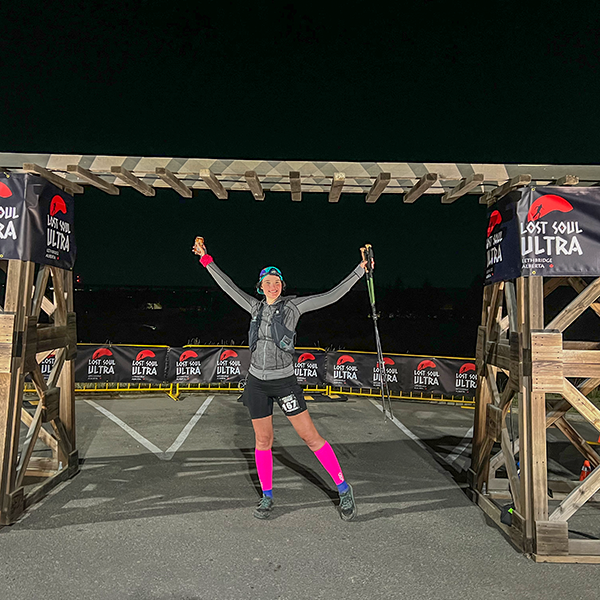
My advice is to take extra strength Advil before you go to sleep. If you are a real go-getter you can have a hot shower and maybe even stretch a little when you’re all warmed up after you’re nice and clean. But seriously, Advil. Your body doesn’t suddenly relax once you stop running, even though that’s all you want it to do. You just ran 100kms, you’re going to be in a whole new category of pain. Just take the Advil, and let it do its thing so you get a few hours of sleep. It’s one thing to be sore, it’s another to be sore and delirious. Prioritise your sleep.
As counterintuitive as this sounds, once you’ve caught a few zzz’s and managed to wash 20 hours of dirt, sweat, tears, blood, and sunscreen of your body, you’re going to want to get moving. Gently. It will suck, but after about 30 minutes of walking, you’ll feel a hell of a lot better.
Next, refuel (sensibly). You could eat whatever you want, in whatever portion size you fancy after burning all those calories, but your body needs to be satiated with nutrients. Let’s face it, chips, ice-cream and pizza isn’t going to cut it. Load up on food for the next few days, but be reasonable with what fuel you’re putting in your body to help it recover properly. If you can follow this advice, you should be able to get back to running the same week. Do lots of stretching and foam rolling, and of course don’t deprive your muscles of the glory of a long, hot, Epson salt bath.
Overall, the race went well. The 50% rule worked. I ate and drank despite feeling nauseous as could be, and that did me the world of good.
Psychology plays a huge role in accomplishing and training for a distance like this. When the going gets tough, only the mentally strong will be able to make it through the night. That being said, you do have to train, and you don’t have to follow an exact training plan. Do what works for you.
It isn’t uncommon to come across runners on hands and knees heaving in the bushes, lining up in medical tents, or standing motionless in the woods hallucinating at 2am. Prepare yourself for these possibilities ahead of time. Push yourself to those ‘dark places’ so you can know what to expect from yourself before race day.
Do absolutely nothing two days before race day. The work is done, there is nothing more you can do to prepare yourself at this point, just take it easy. Sleep doesn’t usually come easy for most athletes the night before race day, so try to prioritise a good night’s sleep the day before the eve of the race.
Vaseline your feet and toes. I know it’s gross, but please take my word on this one.
The feeling of accomplishment and knowing that you can do hard things will undoubtedly affect you in your personal life. You can ask for that promotion, you can pursue a completely new career, and you can absolutely run 100kms.
Everything is temporary. Everything. Look around you now, seriously, do it. All of this won’t last forever. The pain or the glory. The trick is to be adaptable. If you’re going through hell, keep going, if you’re living a privileged life- recognise it and be grateful. Hardships come and go. Life gives you highs and lows. People often find life changes to be daunting, hard to predict and overcome. Run 100km. You will have highs and lows. You can’t possibly anticipate when life will bring you up or down. Running 100kms is like getting through life, but in a day. It teaches you to go with the flow, and to keep going when things get rough.
Endurance running is a team sport, and not every man for himself as it may appear at first glance. Lord only knows where I would be without the volunteers feeding me, and filling my water bottles. Or, the spectators cheering me on despite them not knowing who the hell I was or what I mattered. This kindness, and care from strangers and fellow trail runners gave me huge amounts of energy and the motivation to keep going.
To be honest- I don’t know what’s stopping you from trying. The worst thing and best thing that can happen is that you struggle and learn from it, and keep going. Is anything worthwhile ever easy? Why deprive yourself of that experience? Life is short; really, what is 20 hours of moving and eating in the long run?